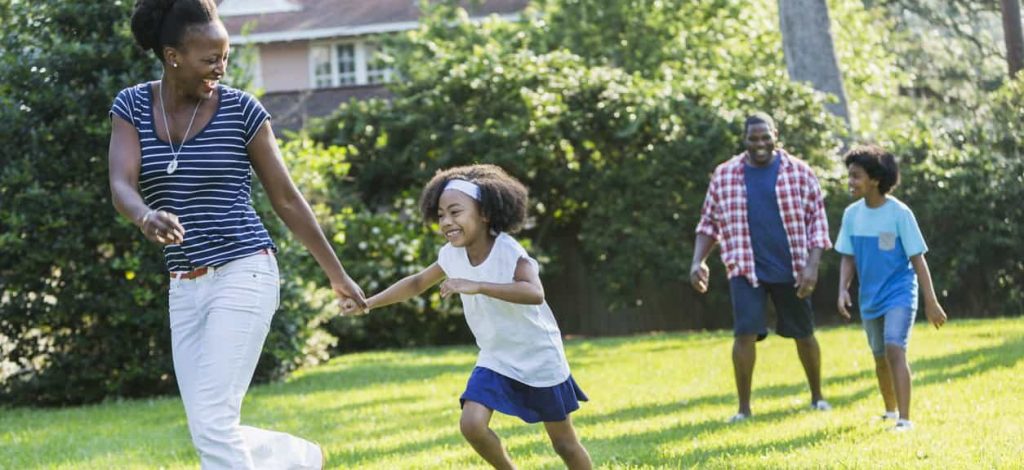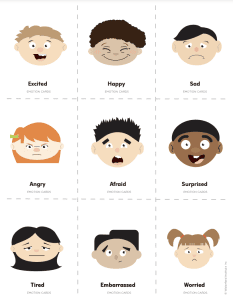Social-emotional skills (or mindset skills) shape a child’s ability to take care of themselves, react to different situations, and build meaningful relationships. As teachers and caregivers, what you do to nurture a child’s emotional growth will benefit them throughout their lives.
Read on to learn about essential social-emotional skills along with practical strategies to teach children these skills at home or in your classroom. From fostering empathy and communication to promoting self-awareness and reflection, each section will give you actionable tips and activities to support a child’s social-emotional skill development.
What Are Social-Emotional Skills and Why Are They Important?
 When talking about social-emotional or mindset skills, experts generally group them into three categories: executive functioning, self-awareness, and social skills.
When talking about social-emotional or mindset skills, experts generally group them into three categories: executive functioning, self-awareness, and social skills.
- Executive functioning skills help children learn to plan, organize, and finish everyday tasks. Setting goals, time management, decision-making, and using memory are all examples of executive functioning skills.
- Self-awareness skills give children the ability to recognize and understand their own thoughts and emotions. These skills are important not only for personal growth but building healthy relationships, too.
- Social skills include a range of abilities that teach children to interact and build relationships with others in various settings. Communication, or the ability to express yourself and listen to others, is a key social skill.
Guidelines can be helpful but ultimately, children reach learning milestones at individual times. This is especially true for neurodivergent learners, including children with autism and ADHD, who may develop these mindset skills at their own pace. Talk with a physician or school specialist to discuss what milestones to look out for and practice with a child.
Learning Executive Functioning Skills for Kids
Executive functioning skills are all about helping children learn to plan and complete tasks. Teach children to break down tasks into smaller, achievable steps. If a child needs to finish their homework, for example, you could encourage them to create a list of smaller tasks like “complete math worksheet” and “read independently for fifteen minutes.” This can help them learn organization and planning skills.
Introduce daily schedules at school or home to help children manage their time and develop learning routines. Ask for their help to plan out these schedules and show them how it fits into their daily goals.
As with all skills, positive reinforcement is a great way to motivate children as they practice executive functioning. Recognize and celebrate their successes, no matter how small. If a child completes their daily reading assignments all week, you could reward them with a trip to the local library or a classroom incentive.
Learning Self-Awareness Skills for Kids
A big part of self-awareness is learning to recognize different feelings. Help children identify and name their emotions. Teach descriptive, emotional words like “frustrated,” “excited,” or “disappointed” to help them express how they feel to others. These emotion cards (available in English and Spanish) can be useful for recognizing feelings.
Validate a child’s emotions as they feel them by acknowledging them without judgment. Let them know that it’s okay to feel how they do and teach them ways to manage their emotions in a healthy way.
Children who can write may appreciate journaling to process their feelings and practice self-reflection. These journal prompts for kids can be a great starting point. Children who are still learning how to write can draw pictures of how they feel to communicate their emotions.
Learning Social Skills for Kids
Children often learn social skills by observation. As you demonstrate positive social behaviors like empathy and cooperation in your own interactions with others, children pick up on these subtle lessons. You can also include social skills practice in your school or daily learning routines as you teach them what to do in different situations. Add to that learning with this “Please and Thank You” social skills activity (available in English and Spanish), for example, to help children practice good manners.
 Also, give children opportunities to practice and strengthen social skills with other children. Arrange playdates or group lessons and participate in community events where children can interact with peers. These activities allow children the opportunity to use their social skills in real-life situations.
Also, give children opportunities to practice and strengthen social skills with other children. Arrange playdates or group lessons and participate in community events where children can interact with peers. These activities allow children the opportunity to use their social skills in real-life situations.
As children interact with others, help them understand different feelings and perspectives by asking questions like, “How do you think your friend felt when you did that?” This can help them see situations from another person’s point-of-view and learn to treat everyone with kindness.
For more ideas on including social skills in your curriculum or practicing them at home, try these Children’s Books To Teach Social-Emotional Skills.


